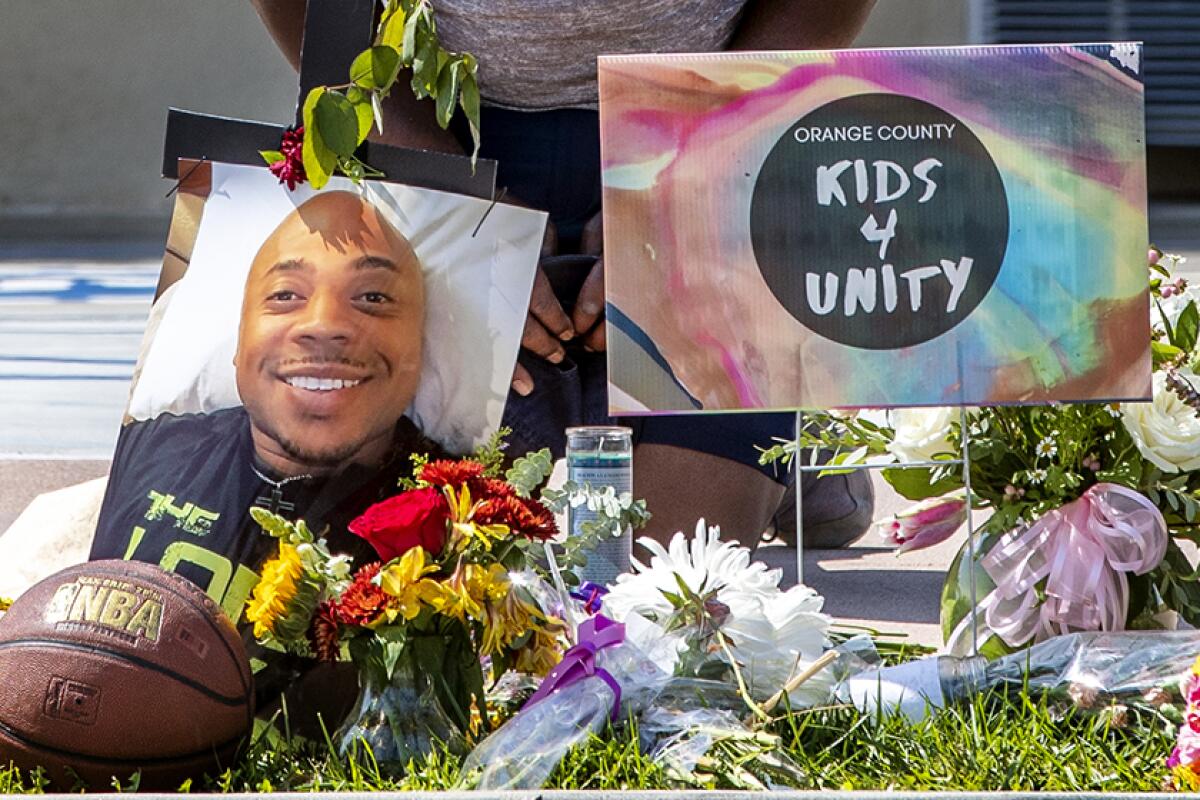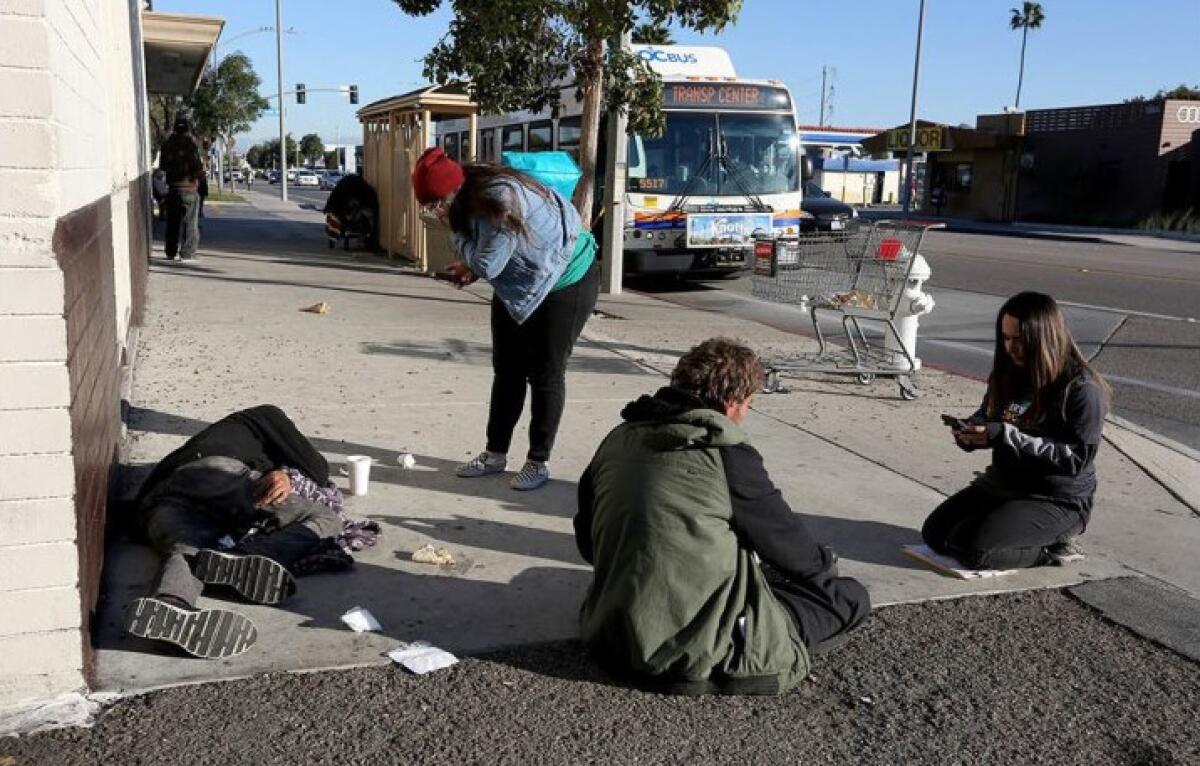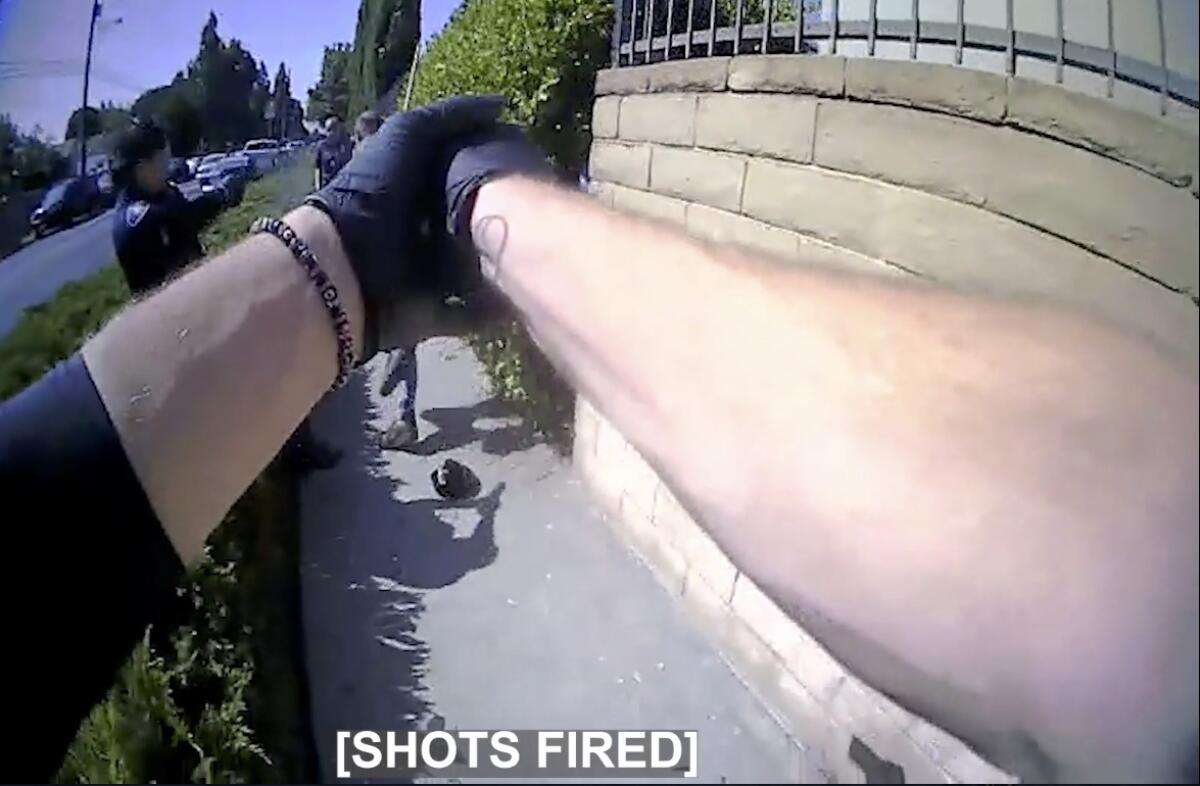As O.C. police face scrutiny for shootings, Irvine starts using medical workers for mental health calls

Irvine has joined other Orange County cities using teams of medical workers to respond to mental health-related calls for service rather than relying on police.
The effort is meant to free up police and decrease violent confrontations between law enforcement and people suffering with homelessness or mental health issues. Many have criticized police responses to mental health calls because they can escalate tensions and provoke violent episodes.
The Irvine City Council on Tuesday night unanimously approved a yearlong pilot program, which will run from 10 a.m. to 10 p.m., seven days a week, with Be Well OC. The city will use the first year to evaluate the effectiveness of the program. The city spent the last four months exploring the program before entering into the agreement.
“A significant benefit of this model is that it relieves our officers from handling non-police-related calls so they can focus their time on activities like proactive policing, crime prevention, community outreach and being available for emergency calls for service,” Irvine police Cmdr. Dave Klug said during the Irvine City Council meeting. “Arguably the most important benefit of this model is that it’s simply better at supporting members of our community suffering from mental illness. The professionals handling these calls have extensive training and experience in supporting those in crisis. They know the resources that are available and are best equipped to help. This should lead to better outcomes.”
The Be Well OC teams, which are comprised of mental health workers and medical personnel, will be dispatched to calls for service in a way similar to police or firefighters. However, the team will only respond to non-emergency calls related to mental illness, substance abuse, homelessness and family support issues. In addition to the mobile teams, Be Well OC runs the first mental health and wellness campus in Orange County.
The Be Well OC mobile response teams are based on a nationally recognized CAHOOTS mobile-crisis intervention program created in 1989 in Oregon. The model is now used by cities around the country, including Oakland, Portland and Denver, among others. So far in Orange County, Huntington Beach and Garden Grove are using the program. Last month, Anaheim approved a one-year pilot program with Be Well OC for the mobile response teams.

Other cities are exploring the mobile response teams in other ways. Fullerton and Buena Park are partnering together in an effort known as Project HOPE, which is expected to start next month. Last month, Santa Ana unanimously approved a contract with homeless service provider CityNet to provide street outreach and care to homeless people, particularly those suffering with mental illness. The pilot program will steer calls for service away from the police department.
At the meeting, Klug and Be Well OC chief executive Marshall Moncrief referenced the benefits that Huntington Beach and Garden Grove have been seeing since the programs were implemented. Klug mentioned that during a ride-along he saw a team effectively deescalate a situation with a young man in Huntington Beach who agreed to be taken to a mental health facility. Moncrief said that a Be Well OC team responded to a call in Garden Grove and was able to resolve a situation with a woman because members of the team could speak Vietnamese.
“The intervention was able to be done in her language, in her cultural style, and we got to resolution much more quickly,” Moncrief said. “So we’re looking forward to bringing that same sensitivity to the diversity of Irvine.”
Irvine City Council members did not discuss the item much other than asking a few clarifying questions for Klug and Moncrief. Vice Mayor Tammy Kim said she was “really excited” about the program. Councilman Larry Agran said he was “very hopeful.”

The programs are being rolled out as the California Department of Justice scrutinizes Orange County law enforcement agencies for the killings of Brandon Lopez and Luis Manuel Garcia, who were both reportedly suffering from mental health issues.
Lopez, the cousin of Santa Ana City Councilman Johnathan Hernandez, was killed on Sept. 28 by Anaheim police after a car chase and hours-long standoff at a construction area on Santa Ana Boulevard in Santa Ana. Santa Ana Mayor Vicente Sarmiento criticized police for acting like “a firing squad” in Lopez’s shooting.
Garcia was shot and killed by Tustin police in August. He had been homeless for many years and had been exhibiting symptoms of schizophrenia, though an attorney representing his family said he was undiagnosed. It is believed that both men were unarmed because the state is investigating the cases under Assembly Bill 1506, which requires the department to investigate all police shootings resulting in the death of an unarmed civilian in the state.
Last year, Kurt Reinhold, a homeless Black man with mental health issues, was shot and killed during a confrontation with Orange County sheriff’s deputies in San Clemente. The incident provoked outrage similar to the highly publicized Fullerton police killing of Kelly Thomas, a schizophrenic man who was beaten to death a decade ago. AB 1506 took effect in July.
All the latest on Orange County from Orange County.
Get our free TimesOC newsletter.
You may occasionally receive promotional content from the Daily Pilot.




